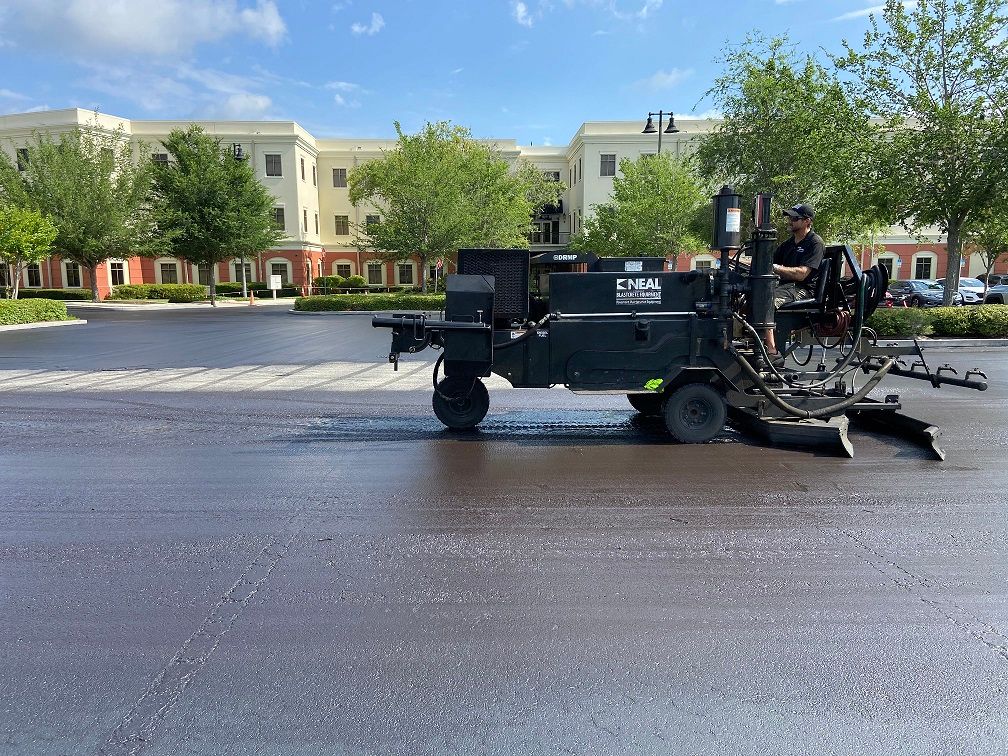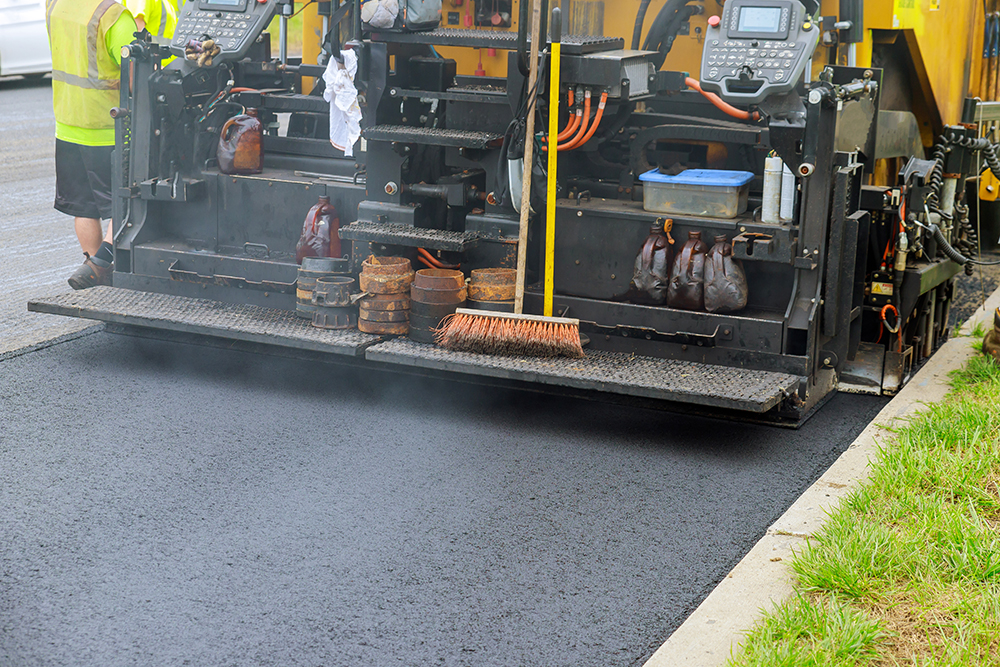

Your asphalt pavement is more than just a surface—it's an investment that requires strategic care throughout the year. Whether you're managing a commercial property, residential driveway, or parking lot, understanding how seasonal changes affect your pavement can save you thousands in premature replacement costs.
Florida's unique climate presents specific challenges for asphalt maintenance. The intense summer heat, sudden temperature fluctuations, and heavy rainfall periods all take their toll on paving surfaces. By implementing a seasonal maintenance approach, property owners can extend their pavement's lifespan significantly while maintaining both functionality and curb appeal.
This comprehensive guide breaks down the essential maintenance tasks for each season, helping you protect your asphalt investment year-round. From spring cleaning and crack sealing to winter preparation strategies, you'll discover practical steps that keep your pavement in optimal condition regardless of weather conditions.
Spring marks the perfect time for comprehensive pavement assessment. After months of potential weather-related stress, your asphalt needs careful evaluation to identify any damage that developed over the cooler months.
Begin with a detailed walkthrough of your entire paved area. Look for cracks of any size, as even hairline fractures can quickly expand into costly problems. Pay special attention to areas around drainage systems, expansion joints, and high-traffic zones where stress concentrates.
Document any potholes, surface deterioration, or areas where the pavement appears to be settling. Take photographs and measurements—this documentation proves invaluable when planning repairs or consulting with paving professionals.
Clean your pavement thoroughly using pressure washing or professional cleaning services. Remove all debris, oil stains, and vegetation that may have accumulated in cracks or along edges. This cleaning process reveals hidden damage and prepares surfaces for repair work.
Address minor cracks immediately using quality crack filler or sealant. Small cracks that receive prompt attention rarely develop into major structural issues. However, cracks left untreated can allow water infiltration, leading to base layer damage and expensive reconstruction needs.
Consider professional sealcoating during spring months. Fresh sealcoat provides UV protection, enhances appearance, and creates a barrier against oil, gas, and chemical spills that can soften asphalt surfaces.
Florida summers test asphalt durability with intense heat and frequent storms. Your maintenance strategy during these months should emphasize protection and proactive care.
Monitor surface temperatures during peak summer days. Extremely hot asphalt becomes soft and susceptible to indentations from heavy vehicles, furniture legs, or kickstands. When possible, restrict heavy traffic during the hottest parts of the day.
Ensure proper drainage around all paved areas. Summer storms can dump significant rainfall in short periods, and standing water accelerates pavement deterioration. Clear gutters, drains, and surrounding areas of debris that could impede water flow.
Aggressive summer growth can quickly compromise pavement edges and infiltrate small cracks. Regular trimming and herbicide application prevent root systems from undermining your asphalt's structural integrity.
Remove weeds immediately when they appear in cracks or joints. Their root systems expand existing damage and create pathways for water infiltration.
Fall provides ideal conditions for major maintenance projects. Moderate temperatures and typically drier weather create optimal circumstances for sealcoating, crack repair, and resurfacing projects.
Schedule comprehensive repairs during fall months. The moderate temperatures allow sealers and patching materials to cure properly without the stress of extreme heat or unexpected cold snaps.
This season offers the best opportunity for resurfacing projects. If your pavement shows significant wear but maintains structural integrity, a new surface layer applied during fall weather will cure completely before winter arrives.
Clean and seal all cracks before cooler weather arrives. Water that freezes in cracks expands, creating significant damage that requires expensive spring repairs.
Ensure drainage systems function optimally. Standing water that repeatedly freezes and thaws can cause substantial damage to both the asphalt surface and underlying base materials.
While Florida winters are mild compared to northern climates, temperature fluctuations and increased rainfall require adjusted maintenance approaches.
Monitor pavement during periods when temperatures swing between warm days and cool nights. These cycles can stress asphalt and accelerate existing damage.
Avoid heavy traffic or equipment placement on pavement during the coldest periods, when asphalt becomes more brittle and susceptible to cracking.
Winter often brings extended periods of rainfall and higher humidity. Ensure water moves quickly off pavement surfaces and doesn't pool in low areas or around drainage points.
Inspect and maintain sealcoat integrity throughout winter months. Quality sealcoating provides crucial protection against moisture infiltration during these wetter periods.
While property owners can handle basic maintenance tasks, certain situations require professional expertise. Extensive cracking, drainage issues, or structural problems need professional assessment and repair.
Professional paving contractors bring specialized equipment, materials, and experience that ensure long-lasting repairs. They can also identify underlying issues that might not be obvious to untrained observers.
Regular professional inspections, even when no obvious problems exist, can identify potential issues before they become expensive emergencies. Most reputable contractors offer assessment services that can save property owners significant money over time.
Consistent seasonal maintenance transforms asphalt care from reactive crisis management into proactive investment protection. By following these seasonal guidelines, property owners can dramatically extend pavement lifespan while maintaining professional appearance and functionality.
Start implementing these strategies immediately, regardless of the current season. Even small steps like regular cleaning and prompt crack repair provide measurable benefits that compound over time.
If you need professional paving in Daytona Beach, FL, contact Florida Sealcoating today for free estimates. Their experienced team can assess your pavement's current condition and develop a maintenance plan that protects your investment year-round.
Get a free, no-obligation estimate for your asphalt project. Our team is ready to help protect and enhance your property.
(407) 942-3681